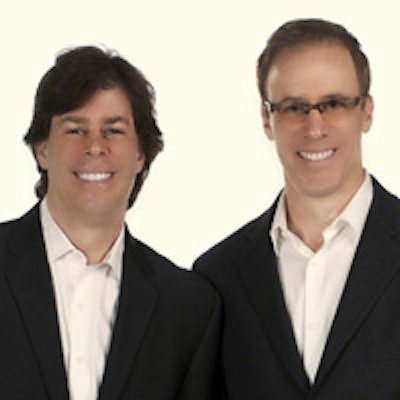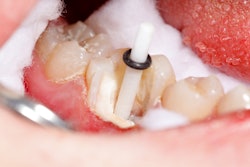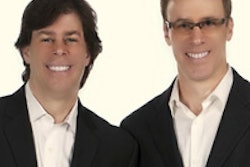
We aren't really comfortable answering questions like this. So it's important to have a fantastic answer. (We'll give you one in a second.)
But what is just as important, if not more so, is that everyone on the team has the same answer. What would happen right now if a patient in your practice asked this question to the doctor, then the hygienist, then the dental assistant, and then the business assistant? If your practice is like most, the result would be a total disaster.
 Richard H. Madow, DDS, and David M. Madow, DDS.
Richard H. Madow, DDS, and David M. Madow, DDS.Everyone on the team needs to know how to answer the difficult questions correctly and consistently. It's what our mentor Dr. Mort Ehudin called "doing your homework" and what our friend Bill Rossi calls "Clinical Calibration." It is imperative to have consistency across the office in everything you do.
Call a team meeting. Heck -- call 10 of them. Make sure that everyone in the practice knows stuff such as when a crown is recommended instead of a composite, inlay, or onlay. Know why periodontal therapy is indicated instead of "just a cleaning." Know how to answer tough questions, such as "Why doesn't my insurance cover that?" And make sure everyone on the team answers the same way.
So doc -- how long will this crown last?
You need to get together as a team, come up with the answer that suits your practice the best, and have everyone practice it until your team is clinically calibrated.
Here's an example of what you can say:
"Jim, that's a great question!" (Use this phrase to start every answer.)
“Everyone on the team needs to know how to answer the difficult questions correctly and consistently.”
"If it's any indication, the insurance companies will pay their share of a crown every five years, and we all know how cheap those companies are. But it's our expectation that your crown will last much longer.
"Of course there are so many factors we can't control, like how strong your bite is, the way your teeth come together, and even the bacteria in your mouth. It's different for everyone.
"I can promise you that if you do a great job brushing and flossing, the crown will last much longer than if you don't. And we've even seen crowns last decades. There is a chance this one will actually outlive all of us. But since we're dealing with the human body, it's just impossible to predict."
If you like that answer, feel free to use it. Just make sure that everyone in the practice knows that is the official practice answer. Don't read it from a script -- practice it until you can say it smoothly in your own words and smile. Then, think of another tough question you are often asked and another and another.
As you can see, communication is one of the most important parts of the practice of dentistry. Without good communication skills, your practice cannot reach its highest level of success.
There is no doubt, to be the best dentists and team members possible, we all need to wear many hats, and the communication hat is just one of them.
In 1989, Richard H. Madow, DDS, and David M. Madow, DDS, founded The Madow Brothers with the goal of helping their fellow dentists achieve success and happiness in their practices. For more information about their e-letters, audio series, New Patient Mail marketing program, Dental Powerhouse group, their live presentations (including "How To Love Dentistry, Have Fun, and Prosper," "The Ultimate Dental Boot Camp," and especially "TBSE"), and more, check them out at www.madow.com.
The comments and observations expressed herein do not necessarily reflect the opinions of DrBicuspid.com, nor should they be construed as an endorsement or admonishment of any particular idea, vendor, or organization.


















